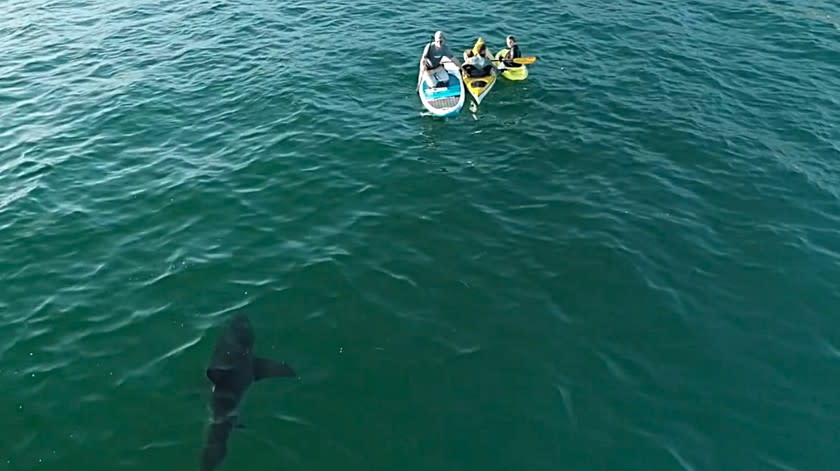Letters to the Editor: He was bitten by a shark — 'I was part of the food chain'

To the editor: Having been on the wrong side of a close encounter with a shark, I think I have earned the right to comment on the article, "Drones show California's great white sharks are closer — and more common — than you think."
I fully appreciate that "sharks just don't care." Was I scared when I was bitten by a shark? No, but I was annoyed. I don't like to be pulled under the water like my brothers used to do to me, and I don't like going to the hospital.
I knew what was happening to me; I was part of the food chain. And like every other living thing that is part of the food chain, I instinctively knew what to do, and that was to get out of there and warn the rest of the herd.
Sharks do their shark thing, and now we're getting to know them better, and I like that. My attitude now is that I've been inoculated against shark bites, because it's even more rare to be bitten twice. I've been inoculated against lightning too, but that's another story.
Gregg Ferry, Carlsbad
..
To the editor: Your article on sharks and surfers, paddlers and swimmers struck home.
Back in the 1980s, flying Navy helicopters out of the North Island Naval Air Station in San Diego, I'd frequently see sharks approach the elderly swimmers who were in the water off La Jolla.
As soon as the shark would determine that no seal was involved, it would lose interest and swim away. It's fortunate for us that sharks don't often confuse humans for seals.
James Thurber, Mountain View, Calif.
This story originally appeared in Los Angeles Times.

